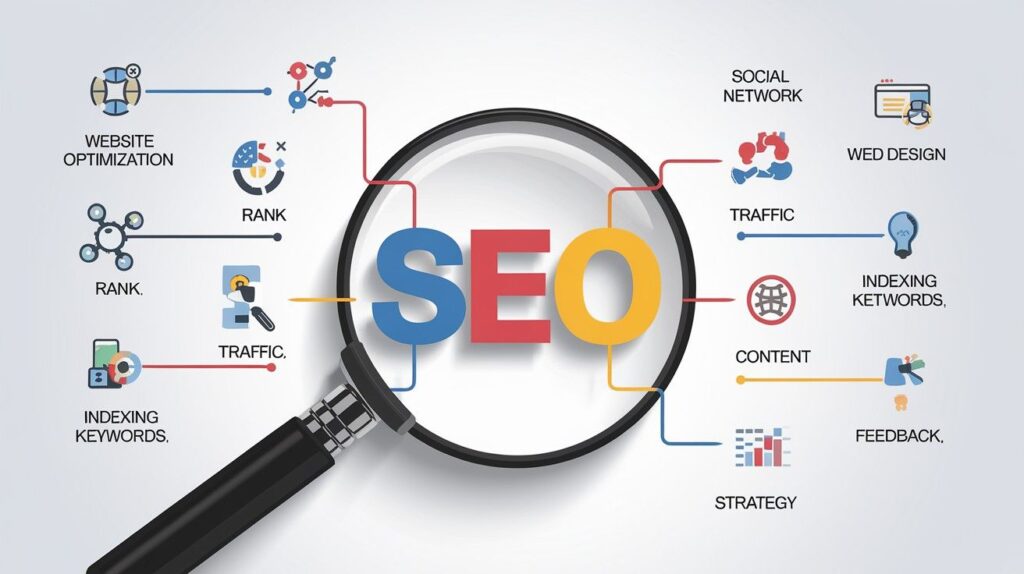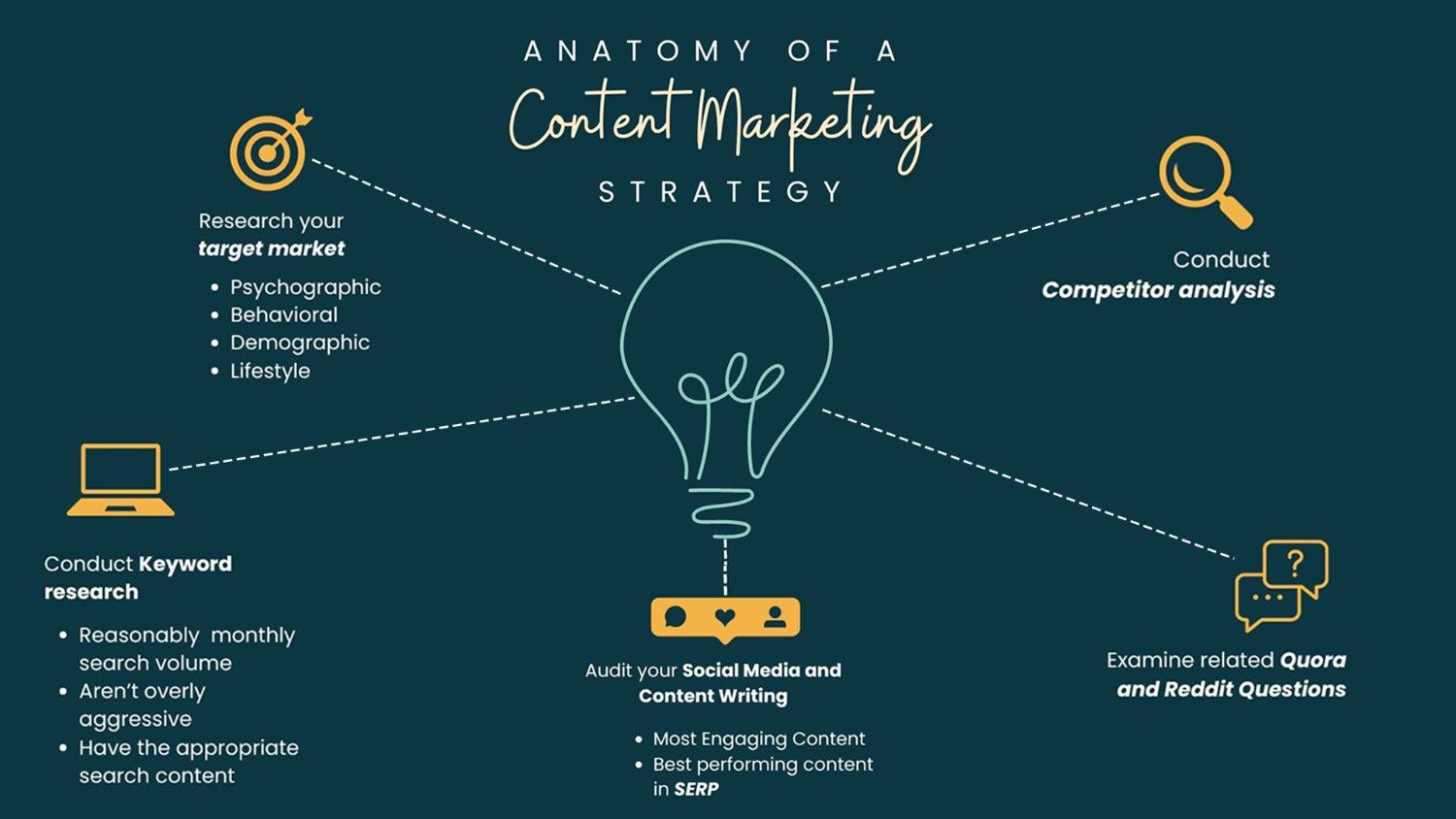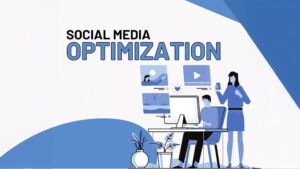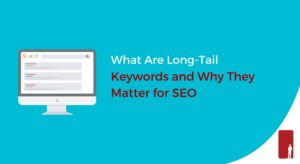With changing consumer behaviors and this fast-paced digital era, organizations need to put extra marketing effort into their survival. That makes content marketing an essential component in digital marketing, which is proven to be one of the most cost-effective and efficient methods for attracting audiences, creating goodwill, and stimulating business.
The perspective of content marketing differs from that of advertising. The latter is all about selling, whereas the former is about providing value to the audience: educating, informing, and entertaining them to disposition their consumers toward judicious purchasing decisions.
After having grasped the concept of content marketing, you may be wondering why it has become so significant in this era of digitization. What consequences does it have for consumer behavior, brand presence, and business success?
What is Content Marketing?
Content marketing is the controlled process of developing and presenting valuable, relevant, and consistent content to draw a defined target audience to keep them. Instead, content marketing simply means one provides customer satisfaction by answering customers’ queries to provide solutions rather than just sticking to a hard sell or sales pitch.
It encompasses different content types including:
- Blog articles – Informational and engaging blog posts that teach readers.
- Social media posts – Interactive and shareable content that boosts brand engagement.
- Videos – Visual narrative that demystifies complex issues.
- Infographics – Bitesized and visually engaging content for instant learning.
- E-books & Whitepapers – Comprehensive guides that offer in-depth insights.
- Webinars & Podcasts – Audio-visual content that creates a loyal following.
At its essence, content marketing is about providing value before demanding anything in return—making it an investment in long-term customer trust and business development.

It Establishes Brand Awareness and Authority
To become successful in a very competitive marketplace, every enterprise has to have a very good ‘brand presence.’
- Regular Content Creates Recognition – The more high-quality content a brand puts out, the more recognizable it gets.
- Expert Insights Generate Authority – Sharing valuable insights and data-driven information establishes a business as reliable.
- Storytelling Fosters Brand Identity – Authentic narratives form an emotional connection with customers.
At its essence, the importance of content marketing in digital marketing is about providing value before demanding anything in return—making it an investment in long-term customer trust and business development.
Establishing Trust Through Useful Content
In a world filled with non-stop advertisements, trust is what builds successful relationships with customers. Content marketing builds that trust by giving information that is real and valuable without seeking an immediate sale.
- Is Demonstrative of Authority – By communicating expert opinions and valuable information, companies earn credibility.
- Respond to Customer Questions – Blog entries, FAQs, and guides address most asked questions and dispel worries.
- Builds Emotional Connection – Storytelling and personal experiences speak volumes to audiences.
It’s been proven that when customers trust in a brand, they’re generally more likely to have interactions, and thus, conversions follow suit and also be retained as loyal customers over the years.
Why Important Content Marketing for Small Business
That’s true that content marketing plays a very positive role in small business values, which is like an easy and profitable means of building a brand image, attracting customers, and enhancing the credibility aspect within the tight knot market. Unlike traditional advertising which usually requires a huge budget to cover, content marketing provides small businesses a direct way to reach their target audience through their blogs, social media, videos, and SEO-driven content.
Providing valued and engaging content helps to educate future customers, showcase expertise, and cultivate long-term relationships. Good content with a good return on investment through organic traffic on search engines increases their rankings without needing to spend on ads. The importance of content marketing in digital marketing is evident in how small businesses can compete with larger companies, drive sales, and build lasting customer trust.
The Digital Shift in Consumer Behavior
The internet, social media, and mobile technologies have completely transformed retail-consumer interaction. Today, the buyer is less swayed by impressive advertising than by extensive research before a purchase.
How Consumer Behavior Has Changed:
- Self-Learning Over Sales Talk – People like learning about a product or service, not being sold outright.
- Decisions Based on Search – Individuals go to Google, YouTube, and social media for reviews and recommendations before purchasing.
- Belief in Content, Not Advertising – Invasive traditional ads are distrusted, but educational content is trusted and appreciated.
- All About Personalization – Audiences respond better to content that speaks to their needs and interests.
With this change, companies that don’t adopt content marketing will fall behind in the online world.
The Power of Content Marketing
A great deal of discussion is going on about content marketing. It’s all understandable, though; it is a process that can guarantee success for any business over a protracted period. It has several advantages that affect every step of the buyer’s journey.
- Increases Brand Awareness – More content increases visibility on search engines and social media.
- Establishes Customer Trust – Useful content establishes brands as authoritative and trustworthy sources.
- Informs and Engages Audiences – Informative content makes customers aware and engaged.
- Drives Conversion Rates – Good content directs consumers towards making buying decisions.
When companies continuously provide high-quality content, they differentiate themselves from others and become industry leaders.

SEO and Content Marketing Synergy
One of the most important features of content marketing is that it’s an asset for improving search engine ranking. Google favors those websites that have quality, relevant, and fresh content.
How Content Marketing Enhances SEO:
- Keyword Optimization – Including targeted keywords assists in ranking higher on search engines.
- Long-Form Content Ranks Better – Well-researched guides and blogs enhance website authority.
- Reduces Bounce Rates – Good content keeps users on a site for longer periods.
- Earns Backlinks – Quality content earns natural links from other high-quality sites.
SEO and marketing content work together to enhance organic visibility, drive traffic, and establish meaningful engagement.
Content Drives Organic Traffic
As opposed to paid ads, which lose traffic when the budget dries up, content marketing is an investment that continues to deliver over time.
Why Content is Key to Organic Traffic:
- People Search for Solutions – Blog posts and guides provide answers to regular questions, creating steady traffic.
- Evergreen Content = Long-Term Growth – Evergreen content keeps bringing in visitors for months or years.
- Social Shares Broaden Reach – Good content gets shared across social networks, drawing new people.
Through a good content strategy, companies can produce continued traffic expansion without the support of paid ads.
Content Marketing Generates Conversions
Ultimately, all marketing efforts seek to drive conversions and sales—and content marketing does this amazingly well.
How Content Converts Visitors into Customers
- Educates Buyers Before Purchase – Instructive content dispels uncertainty and instills confidence.
- Facilitates Decision-Making – Product reviews, testimonials, and case studies drive purchasing decisions.
- Generates Repeat Business – Interactive content keeps repeat customers coming back.
By meeting consumer needs at each point in their journey, content marketing reduces the sales cycle and raises conversion rates.
Assists Nurture Prospective Customers
Not everybody is ready to make a purchase immediately. Content marketing keeps businesses in touch with hope and pushes them down the sales funnel.
How Content Nurtures Leads:
- Awareness Stage – Blog posts, social media, and informative videos capture new audiences.
- Consideration Stage – Case studies and product reviews aid in options consideration.
- Decision Stage – Testimonials, free trials, and promotions drive conversions.
By delivering content tailored to every step, companies can convert leads into repeat customers.
Conclusion:
The importance of content marketing in digital marketing is no longer a choice in the age of the internet—it’s a necessity. From brand awareness and search engine rankings to trust and conversion, quality content is the backbone of business achievement.
By putting money into an effective content plan, companies can get in front of the right audience, build substantial relationships, and drive long-term growth.
Ready to launch your brand to new heights with content marketing? Begin today and see your business soar.
FAQs:
1. How long before results from content marketing start showing?
Content marketing is a long-term strategy. Some companies realize possible results after 3 to 6 months, but huge traffic brand authority and conversion usually take about 6 to 12 months of steady work.
2. What types of content are the most effective for digital marketing?
The content best suitable for your audience and industry is blogs, videos, social media posts, infographics, and case studies to capture the interest of the users and drive conversions.
3. How can small businesses maximize their returns with content marketing?
Small businesses can successfully compete against the relatively big ones simply through valuable and targeted content. High-quality brands give an Authentic voice for building traffic through optimized SEO sharing and engaging social media posts on channels, as well as retaining customers at a low cost.
4. How does content marketing improve SEO?
The content of the website in the long run benefits from high-quality keywords in improving search engine rankings as more site visitors result from organic traffic. Google loves relevant content, either informative, engaging or even consistently updated content to enhance visibility and online presence.












